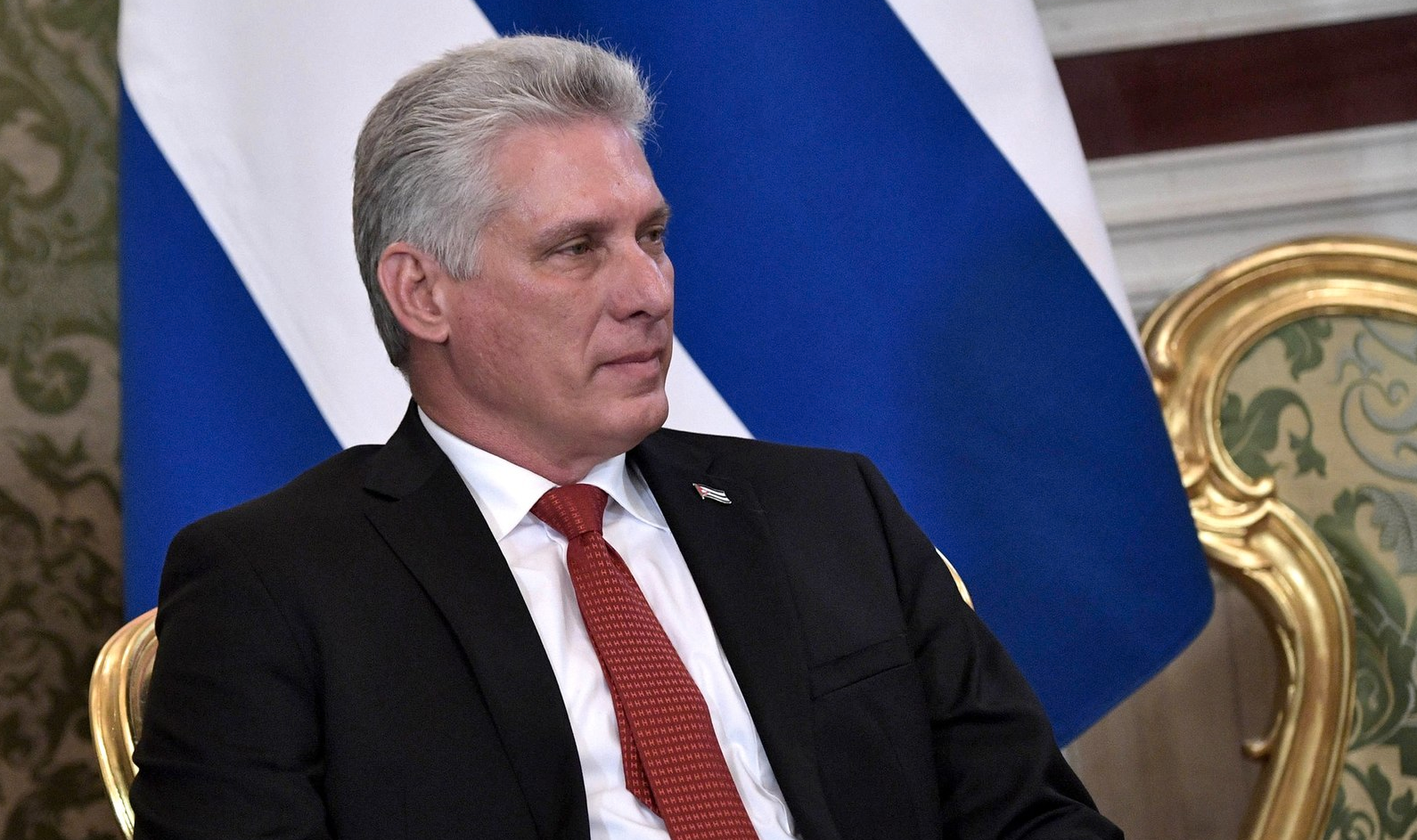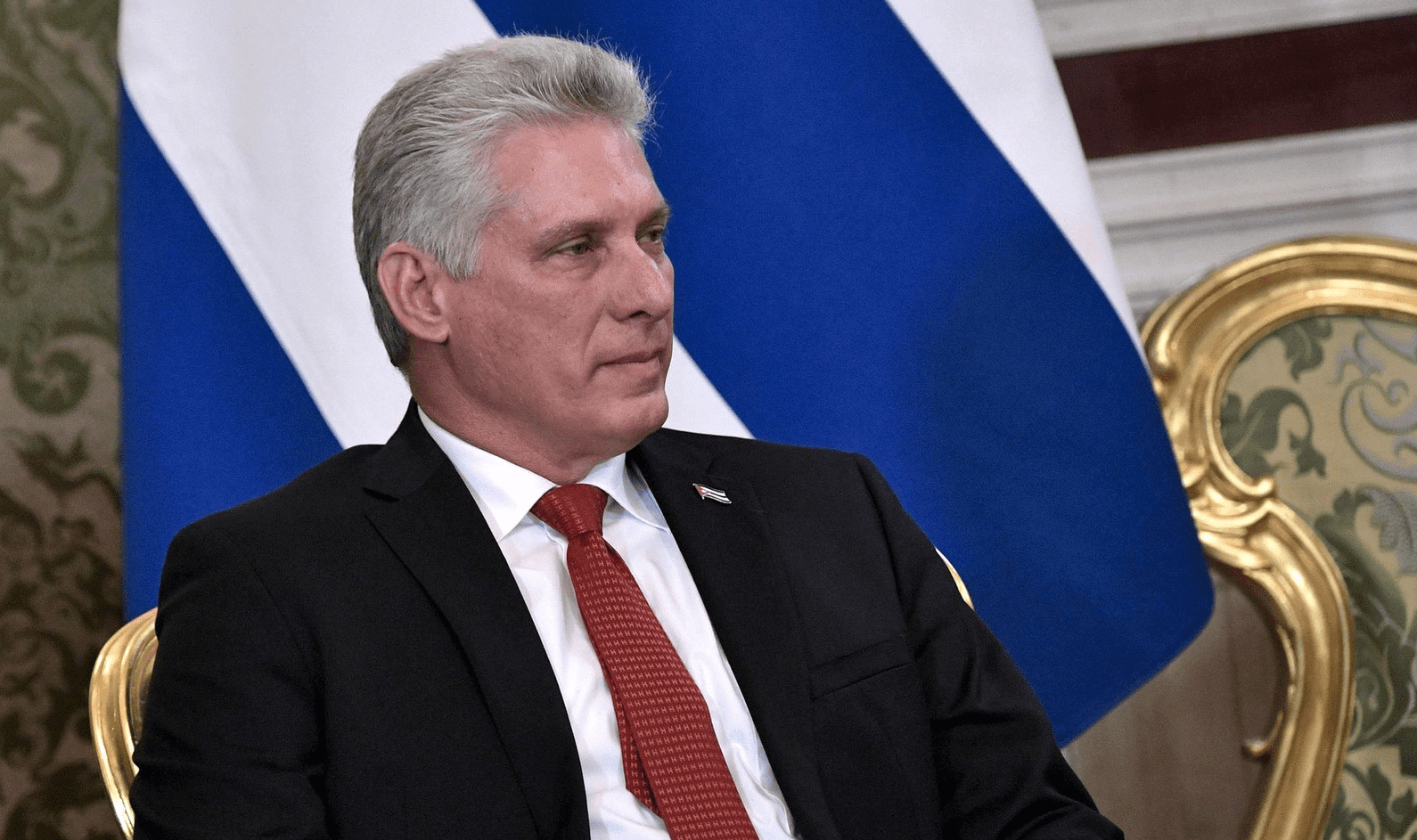Politics
Biden’s open-border extremism is helping Havana’s communist junta cling to power.

Media reports indicate that the dictatorship in Havana is encountering serious unrest and growing political opposition from Cubans in the streets demanding life’s necessities, such as basic electricity and enough to eat. Under pressure and financially bankrupt, Cuba’s communist junta, led by Miguel Diaz-Canel, has even turned to the United Nations to ask for food supplies.
Regime apologists and fellow-travelers, as usual, rush to blame the long-standing U.S. embargo as the root cause of Cuba’s crisis, instead of the economic incompetence of the communist dictatorship. First in line to defend Havana, no surprise, is Mexico’s President Lopez Obrador, who regularly bestows Diaz-Canel awards and praises the “hope and future” that Marxism offers Cuba.
The Mexican president lives in the same ideological fantasyland as the United Nations, which elected Cuba for the sixth time last October to the world body’s Human Rights Council. Few even comment on the UN routinely giving this responsibility to a ruthless dictatorship that currently detains some 1,020 political prisoners.
Yet, despite the constant ideological pandering, the much-decried U.S. embargo is not the most consequential Washington policy vis-a-vis Havana. The most significant U.S.-Cuba policy concerns migration, and Washington’s robotic willingness to promote the never-ceasing exodus of Cubans who abandon their homeland to live in el Norte. This bad policy has been pushed into hyperdrive by Biden’s extreme open-borderism.
It is the departure of these frustrated and often desperate Cubans, the very people who would constitute a formidable opposition to the communist junta, that relieves pressure on Diaz-Canel and enables the regime to resist any change. The Fidelista maxim to these Cubans: “If you cannot sacrifice for the revolution, then go!”
Americans have always been generous to foreigners escaping tyranny, and Cubans, at the top of the list, have been fleeing their communist overlords for decades. But since the end of the Cold War, Washington strategists have never honestly addressed the direct connection between constantly expanding Cuba’s diaspora northward and the unintended impact of that policy on the broken-down regime’s survival.
The Biden administration, obsessed with throwing open U.S. borders, has taken a dubious migration policy towards Cuba and turned it into a migrant tsunami, unleashing a human maelstrom of fleeing people. Just in 2021–23, under President Biden, more than half a million Cuban migrants have entered the U.S., representing an incredible 5 percent of the island’s total population.
To understand the scale of what Biden is doing, consider that U.S. immigration law would have authorized a typical country of Cuba’s population size (11 million) about a total of 12,000 immigrant visas over those same three years.
Both the Diaz-Canel junta and Biden’s misguided policies tell disaffected Cubans they should abandon their country and come to the United States. The Biden approach promotes brain-drain on steroids as the island continues to bleed its greatest resource and hope for change: motivated young people. As they flee in the hundreds of thousands, homegrown political pressure on the dictatorship evaporates.
The Biden administration has no other policy for dealing with Havana. Secretary of State Antony Blinken has no comments on Diaz-Canel’s dictatorship and says nothing about how totalitarian Marxism continues to strangle a forgotten nation.
Where are the American voices exhorting young patriotic Cubans to stay, resist, and struggle to make a better future for their forlorn country? Of course, encouraging Cubans to remain and join the opposition entails risks. Even peaceful acts of protest can bring out Diaz-Canel’s armed and deadly henchmen.
Yes, the Cuban state-security service arrests and intimidates, but the alternative is to condemn poor Cuba to yet another half century of penury and oppression as corrupt ideologues like Diaz-Canel play at “making revolution.” During South African apartheid, American leaders regularly expressed solidarity with the oppressed, who were urged to resist, not to flee their country en masse.
Opportunities abound for Biden to go to his bully pulpit. For example, Cubans protesting in the streets have changed Fidel’s fanatical motto “Patria o Muerte” (fatherland or death), long considered by Fidelistas as the country’s sacred watchword. Demanding a normal country, protesting Cubans instead proclaimed “Patria y Vida” (fatherland and life). Touche! Washington should speak in solidarity with these people, denounce Diaz-Canel’s dictatorship, and encourage patriots to stay on the island.
Today, hearing no demands from the Biden administration, Diaz-Canel is thrilled to continue pushing disgruntled Cubans off the island through Mayorkas’s open door right into the United States. Diaz-Canel knows that these frustrated Cubans, who tend to be young and ambitious people, would swell the ranks of protestors in the streets.
Diaz-Canel also wants these Cubans in el Norte, where they can earn and send back billions in remittance dollars. Taxed by the regime, these remittances ($4 billion, or 26 percent of the economy) literally save the bankrupt communist system from imploding, just as Soviet subsidies were crucial in keeping Castro in power. These funds, mainly provided by family members, also have an outsized impact on the Cuban economy since they often go into creative private hands.
Meanwhile, the Havana regime is incapable of finessing a China-style mix of communist party state control that permits real commercial enterprise. Fearing he will go down Gorbachev’s path to doom, Diaz-Canel has not really advanced beyond Fidel’s basic economic principles, which were best illustrated by Castro’s decision, many years ago, to name Che Guevara as head of the Cuban central bank. Che famously joked that he agreed to run the bank because he thought Fidel had asked for a “comunista” instead of a “economista.”
All of this is why Washington’s embargo (communist propaganda calls it a “blockade,” as if U.S. warships were right offshore) is far less significant in frustrating Cuba’s commercial activities as are the regime’s own nonsensical Marxist policies.
The most common Cuban aspiration, of all those banned by the communists, is not to read the New York Times online or debate with their ruling ideologues, but to undertake their own free-enterprise commercial activities—in traditional trades, tourism, farming and fishing, construction, and small-scale production. As I observed as a U.S. diplomat during three years on the island, interacting with countless unofficial Cubans, they are remarkably creative, hardworking, and entrepreneurial people. They must be in order to survive.
That is why, under strict control, the communists channel this economic creativity into the hands of small-time entrepreneurs, known in Cuba as cuentapropistas. Otherwise, the regime would have long ago starved the country to death. Today, the cuentapropistas make huge contributions to the country’s fragile economy, and in no serious way are hampered by the U.S. trade embargo. If allowed to flourish without the government on their backs, the cuentapropistas could remake Cuba.
But it is not going to happen under communist rule. Instead of ramping up this kind of commerce, the Diaz-Canel junta keeps it on a knife’s edge. The regime always keeps cuentapropistas and their commercial activities vulnerable to the whims of arbitrary communist state planners, who can decide, by fiat, to declare their business activities illegal and prohibit them. This devious tactic also drives frustrated Cubans to Miami.
Cuban Marxists, of course, outlaw such unregulated commerce in the theoretical name of “preventing exploitation.” The reality, of course, is that Havana’s communist overlords fully understand that robust private economic enterprises on the island will bring about countless small power centers the regime cannot control. With economic strength comes political power.
That is why the Diaz-Canel junta has no higher priority in its engagement with Washington than to ensure that disgruntled Cubans continue to have an option to abandon their country and move north.
Subscribe Today
Get daily emails in your inbox
While many of our Cuban-American anti-communist friends may disagree, the time has clearly come to end this exodus. It is not because Americans do not have great sympathy for Cubans fleeing a corrupt tyranny, but a new approach, for both countries, is very much needed.
A new American president must terminate the parole programs that admit hundreds of thousands of Cubans. These programs began with the 1994–95 Washington-Havana migration accords and were vastly, irresponsibly expanded by the Biden administration. It is also time to end the Cuban Adjustment Act of 1966 that fast-tracks Cuban arrivals to U.S. legal permanent residency and provides federal financial subsidies. This is a magnet for Cubans to come here, and the act is unfair to other immigrants also fleeing tyranny.
It is way past midnight in Havana. New U.S. diplomacy and policies must encourage Cuban patriots to stay and resist, to find their future in a new, free Cuba, and not in Miami.
